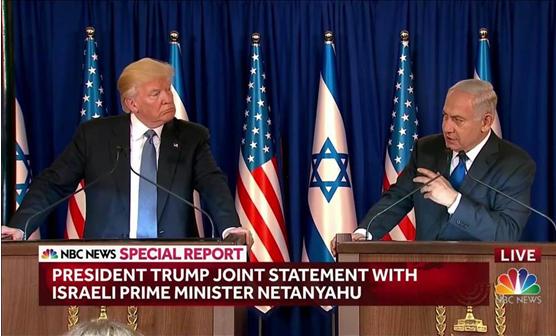Prime Minister Benjamin Netanyahu said Monday, February 12, that he has been conducting talks with the White House on a “historic” initiative to annex Israeli settlement areas in occupied Palestinian West Bank. On Sunday, Netanyahu asked coalition party leaders to put off the vote on the “sovereignty bill.” The proposal by the chairmen of the influential, right-wing Knesset Land of Israel Caucus, Yoav Kisch (Likud) and Bezalel Smotrich (HaBayit HaYehudi) was based on a Likud central committee decision calling to apply Israeli law to settlements, and both groups have been calling for the policy to be enacted.
“I can tell you that for a while now I’ve been talking about it with the Americans,” Netanyahu said during a Likud faction meeting in the Knesset. “I’m guided by two principles in this issue… optimal coordination with the Americans, whose relationship with us is a strategic asset for Israel and the settlement movement; and the fact that it must be a government initiative rather than a private one because it would be a historic move,” he added.
US backing for such a move would be a major shift in policy for the Americans, who have long considered the settlements an impediment to peace, while the international community and most of Israeli citizens considers them illegal under international law.
However, the White House issued a rare rebuke of Netanyahu on Monday night as it poured cold water on any immediate Israeli settlement annexation plan. The Trump administration also rebutted the premier’s claims that he had presented such a proposal to the US. “Reports that the United States discussed with Israel an annexation plan for the West Bank are false,” White House spokesperson Josh Raffel said on Monday. “The United States and Israel have never discussed such a proposal, and the president’s focus remains squarely on his Israeli-Palestinian peace initiative.”
Netanyahu’s statement drew immediate condemnation from the head of the Joint List, MK Ayman Odeh (Hadash). “Prime Minister Netanyahu has said clearly out loud today what we have known for years: that the Israeli government opposes peace and supports apartheid,” Odeh said. “The Netanyahu government’s web of lies is being torn apart when the prime minister declares that he is interested in annexing the West Bank, but of course without grant citizenship to the millions of Palestinians living there.”
“This is a wake-up call to the international community and to the citizens of the state who aspire to live in peace. We are in the final moments when the vision of two states is still possible. We must stop Netanyahu’s settler government,” Odeh said.
Also on Monday, the Knesset passed a law extending the authority of the state’s Council of Higher Education to Israeli institutions of higher learning located in the occupied West Bank, only a day after a bill that would allow Israel to annex Jewish settlements there was put on hold. Far-right Education Minister Naftali Bennett, of the pro-settlement HaBayit HaYehudi party which proposed the legislation, declared after the bill passed its final reading that “discrimination against students in Judea and Samaria is over,” referring to the West Bank by its biblical name.
Jerusalem Affairs Minister Zeev Elkin – a senior member of Prime Minister Benjamin Netanyahu’s Likud party – lauded the bill’s passage on Twitter. “From applying Israeli sovereignty over Ariel University – to the application of sovereignty over Israeli settlements in Judea and Samaria!” Elkin urged.
Hadash MK Yousef Jabreen (Joint List) said that the “policy of annexation has shifted from creeping to galloping.” He said that the extension of civilian authority to Israel’s institutions of higher learning in the Occupied Palestinian Territories is undermines the status of Israeli academia by linking it to occupation and the politicization of higher education while undermining the two-state solution based on the 1967 border. “By nature, academia promotes values of peace, democracy and tolerance. These values can’t exist in the shadow of a military occupation,” said Jabreen.



